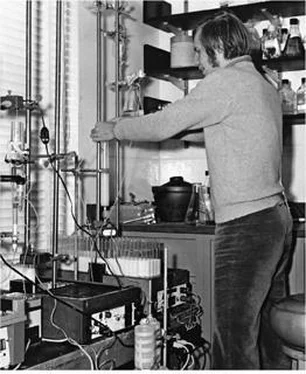James Watson - AVOID BORING PEOPLE - Lessons from a Life in Science
Здесь есть возможность читать онлайн «James Watson - AVOID BORING PEOPLE - Lessons from a Life in Science» весь текст электронной книги совершенно бесплатно (целиком полную версию без сокращений). В некоторых случаях можно слушать аудио, скачать через торрент в формате fb2 и присутствует краткое содержание. Жанр: Биографии и Мемуары. Описание произведения, (предисловие) а так же отзывы посетителей доступны на портале библиотеки ЛибКат.
- Название:AVOID BORING PEOPLE: Lessons from a Life in Science
- Автор:
- Жанр:
- Год:неизвестен
- ISBN:нет данных
- Рейтинг книги:5 / 5. Голосов: 1
-
Избранное:Добавить в избранное
- Отзывы:
-
Ваша оценка:
- 100
- 1
- 2
- 3
- 4
- 5
AVOID BORING PEOPLE: Lessons from a Life in Science: краткое содержание, описание и аннотация
Предлагаем к чтению аннотацию, описание, краткое содержание или предисловие (зависит от того, что написал сам автор книги «AVOID BORING PEOPLE: Lessons from a Life in Science»). Если вы не нашли необходимую информацию о книге — напишите в комментариях, мы постараемся отыскать её.
AVOID BORING PEOPLE: Lessons from a Life in Science — читать онлайн бесплатно полную книгу (весь текст) целиком
Ниже представлен текст книги, разбитый по страницам. Система сохранения места последней прочитанной страницы, позволяет с удобством читать онлайн бесплатно книгу «AVOID BORING PEOPLE: Lessons from a Life in Science», без необходимости каждый раз заново искать на чём Вы остановились. Поставьте закладку, и сможете в любой момент перейти на страницу, на которой закончили чтение.
Интервал:
Закладка:
Skipping high school's last years led to my never learning how to type, and even today I generate left-hand-written versions of the first drafts of all my writings. Without my administrative assistant Maureen Berejka's ever-increasing skill in handling strings of seemingly indecipherable squiggles, this book could never have come into existence. In preparing successive early drafts of the manuscript, I much benefited from the able Barnard College chemistry graduate, Kiryn Haslinger, whose expert knowledge of the English language led to many improvements in my word use. New York University psychology graduate Marisa Macari ably provided help in inserting period photographs and documents. Later, Stanford biology major Agnieszka Milczarek invaluably corrected the many errors of fact and spelling spotted by friends to whom I sent preliminary drafts. Finally, I much thank George Andreou of Knopf for masterly editing that has much improved this volume's clarity and intellectual thrust.
— Jim Watson, March 26, 2007
1. MANNERS ACQUIRED AS A CHILD

With my mother in 1929
IWAS BORN in 1928 in Chicago into a family that believed in books, birds, and the Democratic Party. I was the firstborn, followed two years later by my sister, Betty. My birth was at St. Luke's Hospital, not far by car from Hyde Park, where my parents lived after their marriage in 1925. Soon after Betty was born, my parents moved to South Shore, a middle-class neighborhood populated by bungalows, vacant lots, and two-story apartment houses. We lived in an apartment on Merrill Avenue before relocating in 1933 to a small, four-room bungalow that my parents bought at 7922 Luella Avenue, two blocks away. That move allowed my by then financially stretched, seventy-two-year-old grandmother to live with us in the rear bedroom next to the kitchen. In newly created tiny attic rooms, Betty and I slept on bunk-like beds.
Though I went to prekindergarten at the Laboratory School of the University of Chicago, the Depression quickly placed private education beyond my parents’ means. I, however, was in no way disadvantaged by changing to public school. Our Luella Avenue home was only five blocks away from the academically rigorous Horace Mann Grammar School, which I attended from the ages of five through thirteen. It was then a relatively new brick building built in the early 1920s in Tudor style, possessing a large auditorium for assemblies and
a gymnasium where I was seldom able to do more than two or three push-ups.While both of my father's parents were Episcopalians, only his father, Thomas Tolman Watson (born 1876), a stockbroker, was a Republican. His wife, constantly upset at being a speculator's wife, showed her displeasure by invariably voting for a Democrat. She was born Nellie Dewey Ford in Lake Geneva, Wisconsin. Her mother was a descendant of the settler Thomas Dewey, who arrived in Boston in 1633. The Watson side of my family can be traced back to the New Jersey-born William Weldon Watson (born 1794), who would become minister of the first Baptist church established west of the Appalachians, in Nashville, Tennessee. When he returned from a Baptist convention at Philadelphia in a prairie schooner (before railroads), he brought with him the first soda water fountain ever seen in Tennessee. To counteract the local whisky demon, he set up the soda fountain on a street corner near the church and single-handedly made soda water all the rage. Reputedly he made enough money selling soda water to build a new church for his growing congregation, and it still stands today in the heart of Nashville.
His eldest son, William Weldon Watson II, moved north to Springfield, Illinois, where it is said he designed a house for Abraham Lincoln across the street from his own. With his wife and brother Ben, he later accompanied Lincoln on the inaugural train to Washington. Ben's son, William Weldon Watson III (born 1847), married in 1871 Augusta Crafts Tolman, the daughter of an Episcopalian banker from St. Charles, Illinois. Afterward he became a hotelkeeper, first north of Chicago and then in Lake Geneva, Wisconsin, where he raised five sons including my grandfather, Thomas Tolman Watson. After my grandfather's marriage in 1895, he initially sought his fortune at the newly discovered Mesabi Range, the great iron-ore-bearing region located near Duluth on western Lake Superior. Then he joined his older brother, William, later to be one of Mesabi's senior management. My father, James D. Watson Sr., was born in 1897, followed over the next decade by his brothers, William Weldon IV, Thomas Tolman II, and Stanley Ford.
From northern Minnesota, my father's parents moved back to the Chicago region, where, with the help of his wife's money, my grandfather
bought a large Colonial Revival-style home in Chicago's affluent western suburb of La Grange. My father went to the local schools there before attending Oberlin College in Ohio for a year. Dad's freshman year ended, however, with scarlet fever rather than academic laurels. The following year he would start commuting into Chicago's commercial banking center (the Loop, with its ring of elevated tracks) to work at the Harris Trust Company. Money was short, as usual.
My father, James D. Watson, Sr., in 1925 the year he married my mother

My mother, Margaret Jean Mitchell Watson, models the MacKinnon kilt from Scotland.
But making money was never near my father's heart, and after World War I started, he enthusiastically joined the Illinois National Guard (Thirty-third Division), soon shipping off to France for more than a year. Upon coming home he began working at La Salle Extension University, a prosperous correspondence school that offered business courses. There he met, in 1920, his future wife, Margaret Jean Mitchell (born 1899). She came to work in the personnel department after finishing
two years at the University of Chicago. Mother was the only child of Lauchlin Alexander Mitchell, a Scottish-born tailor, and Elizabeth (Lizzie) Gleason, the daughter of an Irish immigrant couple (Michael Gleason and Mary Curtin) who had emigrated from Tipperary during the potato famine of the late 1840s. After farming ten years in Ohio, they moved on to land south of Michigan City, Indiana, and it was there, in 1860, that my grandmother, Nana to Betty and me, was born.Early in her adolescence, Nana had left the Gleason farm to become a servant in the Barker mansion, the home of Michigan City's most prosperous family, owners of a large boxcar factory. Soon Nana rose to be Mrs. Barker's personal maid, accompanying her around the spas of the Midwest. Later, Mr. Barker took closer note and installed her in a Chicago flat together with funds that allowed her an independent life. Only more than a decade later, in her mid-thirties, did she marry Lauchlin Alexander Mitchell, born in Glasgow (1855) to Robert Mitchell and Flora MacKinnon.
As a youth, Lauchlin Mitchell immigrated to Toronto and from there to Chicago, where his custom-made-suit business thrived by the time of the Columbian Exposition of 1893. Sadly, he died in an accident when my mother was just fourteen, struck by a runaway horse carriage while coming out of the Palmer House Hotel on New Year's Eve. My mother's only mementos of him were a tiny MacKinnon kilt sent to her from Scotland and the splendid pastel of him that was exhibited at the 1893 World's Fair, reportedly commissioned in exchange for a custom-made suit. Nana began to take in paying guests, in effect running an Irish boardinghouse on Chicago's South Side.
Читать дальшеИнтервал:
Закладка:
Похожие книги на «AVOID BORING PEOPLE: Lessons from a Life in Science»
Представляем Вашему вниманию похожие книги на «AVOID BORING PEOPLE: Lessons from a Life in Science» списком для выбора. Мы отобрали схожую по названию и смыслу литературу в надежде предоставить читателям больше вариантов отыскать новые, интересные, ещё непрочитанные произведения.
Обсуждение, отзывы о книге «AVOID BORING PEOPLE: Lessons from a Life in Science» и просто собственные мнения читателей. Оставьте ваши комментарии, напишите, что Вы думаете о произведении, его смысле или главных героях. Укажите что конкретно понравилось, а что нет, и почему Вы так считаете.












